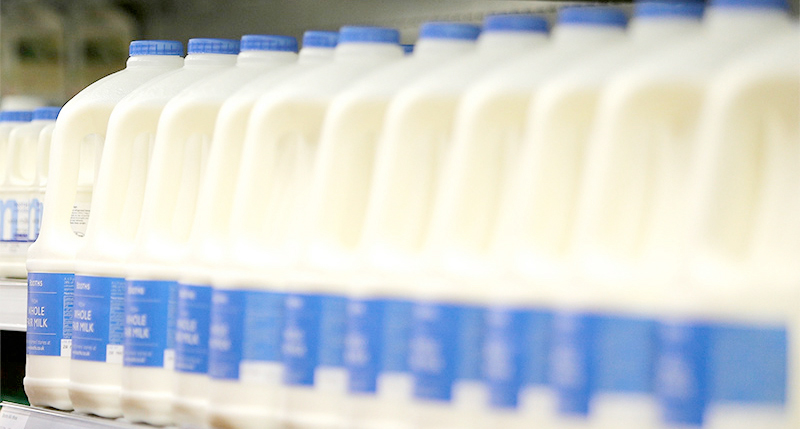
Results from a global survey on school milk programmes have just been published in a new Bulletin of the International Dairy Federation. This survey provides the most up to date information on school milk programmes and how these have developed since the last survey carried out by FAO in 1998.
As mentioned in the FAO publication “Milk and Dairy Products in Human Nutrition,” milk and dairy programmes hold promise for improving human nutrition. Milk is an efficient vehicle for delivering numerous critical micronutrients and improving growth of young children. An article published in Nutrition Reviews** also confirms the crucial role that dairy products play in contributing to adequate intakes of nutrients by children and adolescents and that childhood dairy product consumption may affect various facets of growth and development.
Conducted jointly by the Food and Agriculture Organization and the International Dairy Federation, with the support of Tetra Laval, this survey is the largest of its kind in many years. It provides an in-depth look at school milk programmes in the Americas, Asia, Africa, Australia and Europe.
Through the survey we gathered a large amount of information on consumption, programme structure, nutrition, promotion, packaging, market value, administration and distribution for sixty school milk programmes
As regards to outreach, FAO has long-established networks to share information on all aspects of school milk and its expertise was integral to the success of the project.
“I am happy that the IDF has taken the initiative to rerun the school milk survey and by so doing provided much-needed updated information and analysis on this important subject. I look forward to the IDF promoting further work related to school milk programmes, as it is at the forefront of developing, sharing and disseminating the latest scientific information on dairy related nutrition to demonstrate the important role of dairy in enriching the nutritional quality of diets.” commented Michael Griffin from the FAO, who was responsible for the 1998 international school milk survey.
Some highlights of the survey include:
•A total of 140 million children benefit from school milk, with around 57% of those receiving it at least 5 days per week.
•In 58% of the programmes, children were provided with free milk. In 27% of the programmes, children were provided with subsidised milk.
•For 77% of the respondents, school milk programmes were seen as a special market.
•The most common serving size for school milk is between 101 and 200ml
When asked whether milk was consumed more or less compared with other drinks, 48% of respondents said that milk was consumed less than other drinks. Only 23% reported that milk was consumed more than other drinks
“Globally, School Milk schemes play a key role in ensuring that young children have access to nutritious foods. The importance of this cannot be stressed enough given the role nutrition plays in long term growth and development and overall health. Given the diversity of programmes across the globe, a review of existing schemes was a much-needed exercise to gain valuable insights into how successful programmes were run and to share and learn from other countries’ experience and results. said Judith Bryans, Action Team Leader on School Milk Survey.
“This joint review shows that milk and dairy foods are still as popular as ever and are widely perceived as essential to healthy eating. At a time when a number of misconceptions about the benefits of dairy still need to be addressed, this review shows that schools, teachers, parents and children have a good understanding of the nutritional benefits of dairy and are keen to make dairy healthy go-to foods. As an industry we have to help them do that by ensuring our products are available.
“This review will be useful to all parties involved in school milk schemes from schools to suppliers, with new insights on consumption, promotion and logistics. I am very grateful to the Action Team for their outstanding work to deliver these excellent results.”
